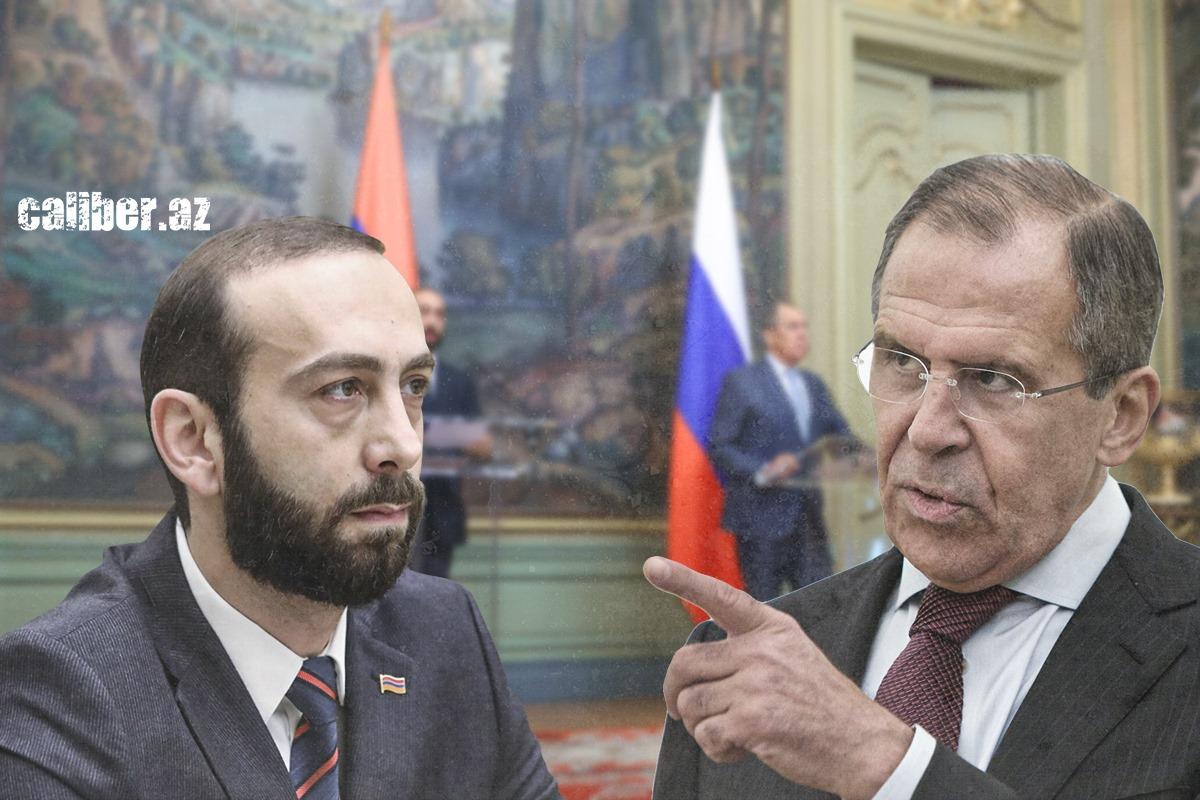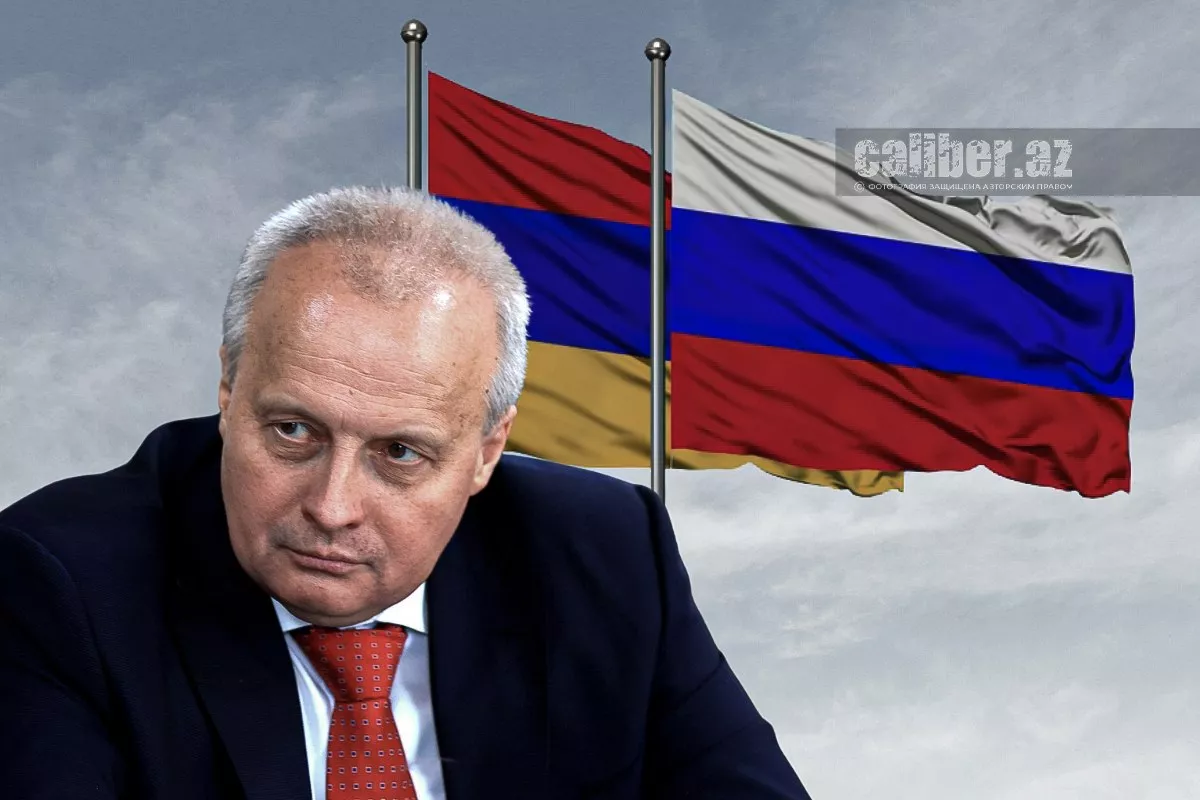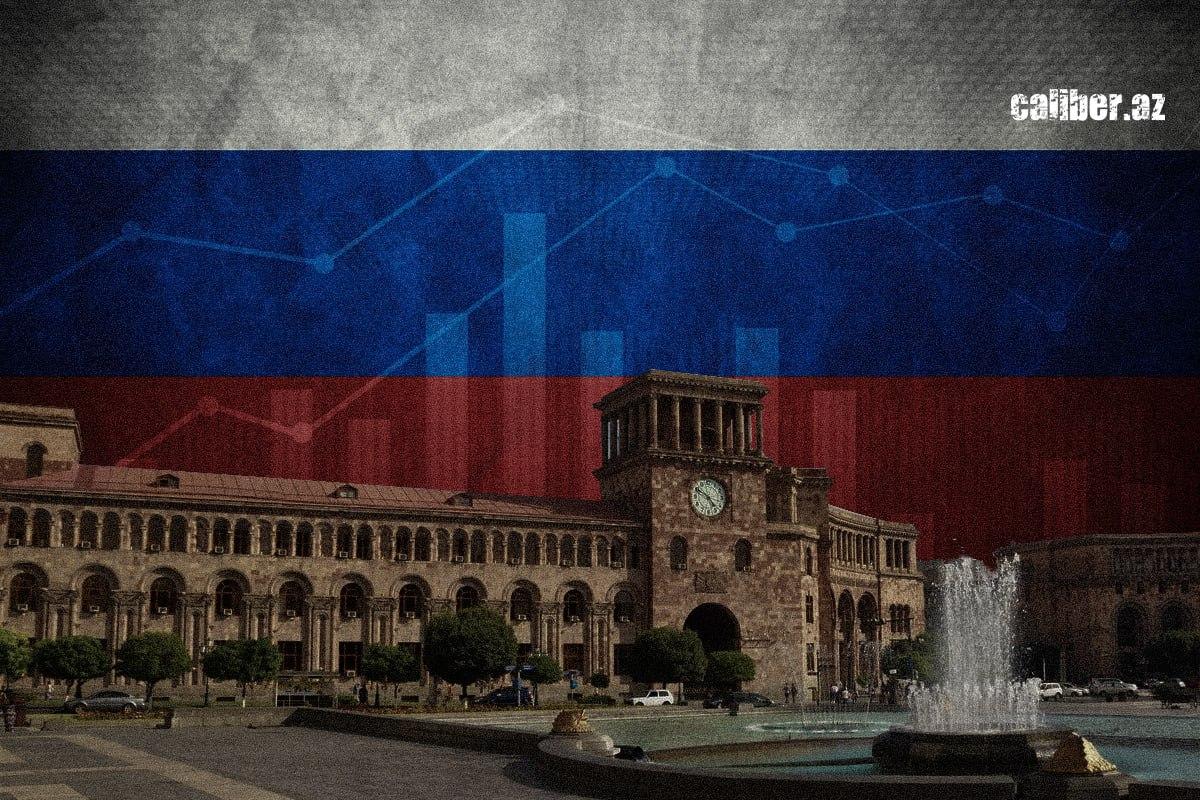Yerevan between the Kremlin and Brussels Ahead of Lavrov’s visit to Armenia
It seems that the main political event of this week in Armenia will be the upcoming visit of Russian Foreign Minister Sergey Lavrov to Yerevan. Armenian media have not revealed any details but report that the visit is scheduled for May 20–21.
Recall that last week, during the weekly briefing, the official spokesperson for the Russian Foreign Ministry, Maria Zakharova, stated that Sergey Lavrov’s upcoming visit to Armenia is being planned, but she did not inform the public about the details of the Foreign Minister’s working agenda in Yerevan.
It is worth noting that the previous visit of the Russian minister to Armenia took place in June 2022, during which he participated in a meeting of the Council of Foreign Ministers of the Collective Security Treaty Organisation (CSTO) member states.
The planned visit of the Russian minister to Armenia is notable because it will take place against the backdrop of a certain reset in Armenian-Russian relations, which has been observed in recent months due to the renewed participation of Armenian officials in events under Russia’s patronage. This development helps ease the tension in relations between Moscow and Yerevan, which, as is well known, had increased in recent years due to Armenia’s overt courting of the West.

Until recently, the Armenian authorities demonstratively ignored meetings within the frameworks of the CSTO and the Commonwealth of Independent States (CIS), criticising Russian policy in the South Caucasus, particularly regarding Armenia. However, at the end of January 2025, following talks between the Russian and Armenian Foreign Ministers Sergey Lavrov and Ararat Mirzoyan—which Moscow regarded as productive and mutually beneficial—a relative thaw began in Armenian-Russian relations. Later, in mid-April, the Speaker of the National Assembly of Armenia, Alen Simonyan, took part in the meeting of the CIS Interparliamentary Assembly in Saint Petersburg, where he held talks with the Chairwoman of the Federation Council, Valentina Matviyenko, whose visit to Yerevan is scheduled for early June this year.
The increased activity in bilateral intergovernmental contacts is also confirmed by the recent visit of Prime Minister Nikol Pashinyan to Moscow, during which he participated in the Victory Day Parade on May 9.
At the same time, it is premature to speak of a definitive Armenian-Russian rapprochement, let alone of Armenia abandoning European integration. Yerevan still tries to "sit on two chairs," seeking to benefit simultaneously from close cooperation with the EU and economic ties with the Eurasian Economic Union (EAEU). This double game causes serious dissatisfaction in Moscow, as evidenced by harsh statements from the Russian side.
The pressure policy on Yerevan is mainly employed by Russia to convince it of the futility of illusions regarding European integration. To this end, Moscow regularly reminds Armenia of its significant economic dependence on the EAEU, while also highlighting political aspects using the example of Ukraine.
For instance, recently, the Russian Ambassador to Armenia, Sergey Kopyrkin, made a notable statement in an interview with one of the Armenian publications: “The example of Ukraine demonstrates what happens when a country finds itself on the frontline of confrontation between Russia and the West.” This message from the Russian diplomat served as yet another reminder to the Armenian side of the challenges Yerevan could face if it moves closer to the West.

In April 2025, Russian Deputy Prime Minister Alexey Overchuk emphasised in a conversation with journalists that Armenia cannot “sit on two chairs” and will soon be forced to choose between the EAEU and the EU.
At around the same time, Rodion Miroshnik, Russia’s Special Envoy at the Foreign Ministry, made a similar statement. In a discussion with journalists in Yerevan, he said: “Ukraine long ago enshrined in its Constitution the aspiration to join the European Union and NATO. How far has Ukraine advanced in this process? Therefore, I believe politicians should draw conclusions from such analogies that will be exclusively in the interest of the Armenian people.”
Thus, Moscow’s harsh messages leave no doubt about the Russian side’s intentions to bring Armenia back fully into its sphere of influence—despite the fact that the country has already found new patrons in France and the EU.
It is clear that Armenia’s movement towards the European Union is forcing Russia to intensify diplomatic pressure on the country. In this context, Moscow periodically uses economic leverage, reminding that Armenia’s trade turnover with the EAEU countries in 2024 amounted to $12.7 billion, while trade with the European Union stood at $2.3 billion. The fact that Armenia’s economic benefit comes from its participation in the EAEU serves as a kind of carte blanche for Russia, giving it the right to remind Yerevan whose hand feeds it.
It is worth noting that Moscow has effectively forced Yerevan to postpone discussions on the draft law to start the process of Armenia’s accession to the EU. To recall, after the Armenian parliament voted on February 12 to adopt the bill in favour of European integration, Russia responded harshly, indicating that Moscow sees no alternative for Armenia’s security other than membership in the CSTO. Therefore, there are grounds to believe that Sergey Lavrov’s visit to Yerevan aims to consolidate Russia’s positions in Armenia, and the opening of the Russian consulate general in Gafan fits perfectly into this logic.

The establishment of a Russian consulate general in Gafan is of interest to Russia from the perspective of unlocking transport communications in the region within the framework of the Zangezur Corridor. Although Armenia actively obstructs the opening of this corridor, it is stipulated in paragraph 9 of the trilateral statement dated November 10, 2020, as well as the condition that control over this route should be exercised by the Border Service of the Russian FSB. This is the first point.
Secondly, Russia needs a diplomatic presence in Gafan to demonstrate to Armenia’s Western partners that the trilateral agreements reached under Russia’s auspices must be strictly observed. It is worth recalling that back in April, Maria Zakharova, during a briefing clarifying the issue of opening the consulate general, stated that there are multifaceted specifics regarding it.
“We expect to reach concrete agreements on the timing of the consulate’s opening by May,” the Russian diplomat said at the time.
Thirdly, Lavrov’s visit is also aimed at strengthening Armenia’s engagement with integration structures such as the CIS, the EAEU, and the CSTO. Therefore, it is likely that during his visit to Yerevan, he will highlight Armenia’s strong economic performance as a result of its participation in the EAEU and remind the republic of its obligations under the CSTO, which the Armenian side had previously distanced itself from.
Taking all these factors into account, one can conclude that Moscow will apply “soft” pressure on Yerevan to ensure it stays within the orbit of Russian policy. Otherwise, Armenia risks losing not only tangible economic benefits, but also placing its own security in jeopardy.








